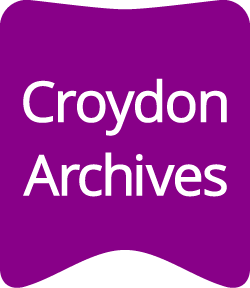Identity area
Type of entity
Corporate body
Authorized form of name
Norbury Manor School First Aid Post
Parallel form(s) of name
Standardized form(s) of name according to other rules
Other form(s) of name
Identifiers for corporate bodies
Description area
Dates of existence
1942 -1944
History
The documents formerly belonged to Mr Percy Oswald Douglas (1888 - 1967), Voluntary Commandant of Norbury Manor School First Aid Post 1939 - 1944.
First Aid posts were established for the treatment of minor injuries and were a supplement to hospitals, freeing them for major casualties. The commandants of the posts all belonged to the British Red Cross Society or the St John Ambulance Brigade and initially left their own employment to take whole-time charge. There were usually around 20 full-time personnel at each post, both men and women who served full time or voluntarily part-time. To each post doctors were attached, who made routine visits and attended on the warning.
Norbury Manor post had windows and shutters broken and the telephone wires put out of action on April 16th 1942. During the first two years of the war, Norbury Manor post treated 50 casualties.
Percy Oswald Douglas was the tenth child of Walter Joseph Douglas, carpenter and joiner, and his wife Elizabeth. They had fifteen children, of whom thirteen lived to adulthood. For most of his life, and certainly after the death of his parents, he appears to have acted as the nucleus of the family, and its chief correspondant.
He began his career as an office boy at The Lady weekly magazine in 1903, working in th eoffice which it still occupies at 39 - 40 Bedford Street, Strand, London WC2. He eventually retired as Company Secretary of the same firm in 1956. He had a strong interest in medical and first-aid matters, dating well before 1914. When the 1914 - 18 war came, he was deemed unfit for military service, as one leg was a little shorter tha the other, the result (probably) of tuberculosis in childhood. He served nevertheless with the Red Cross on the Western Front from 1915 onwards. A few months before the end of the war he married his wife: a wonderful partnership. Perhaps in consequence of his own experience with a massive family, he had only one child.
As the Second World War approached, he was active in Air Raid Precautions (ARP) matters, and when war came he became Commandant of the First Aid Post at Norbury Manor School. This was a very large First Aid Post, and his work was entirely voluntary.
During the war, there were a great many air raid alerts, mostly at night, and quite a lot of casualties in the area, for Norbury was situated in Bomb Alley. His home was about half a mile from the First Aid Post, and he did not have a telephone - though he could have arranged for one if he had wished. Fortunately there was a public telephone very close to the house, which minimised the number of trips he needed to make on foot to the First Aid Post The commandants Log gives some idea of the work which was necessary.
Throughout his period as Commandant, he continued in all the ordinary duties of his job in London, the care of his wife and his son (and dog), his interest in his family and his garden. War or no war, he kept his garden in exemplary condition. The lawn was his special pride but it was reduced in size to permit the production of vegetables, on the Dig for Victory principle.
Places
Legal status
Functions, occupations and activities
Mandates/sources of authority
Internal structures/genealogy
General context
Relationships area
Access points area
Subject access points
Place access points
Occupations
Control area
Authority record identifier
CB044

